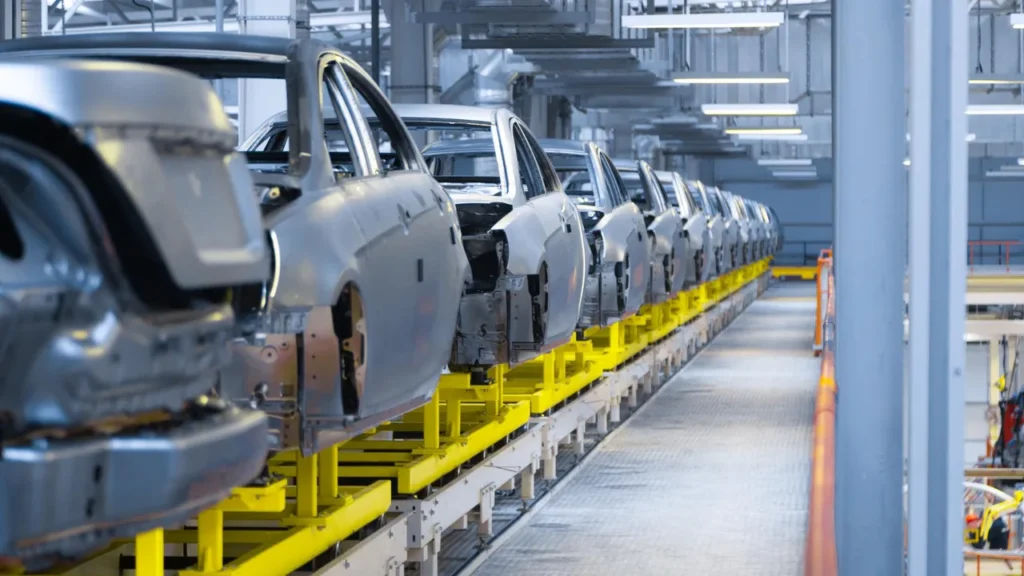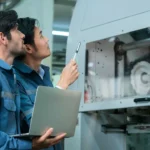China has announced an exemption on export restrictions for chips produced by Nexperia, providing relief to car manufacturers facing supply concerns. The move marks a significant step in easing global trade tensions and stabilizing the semiconductor supply chain.
Background: Trade Tensions and Semiconductor Strain
For several years, the global semiconductor market has been caught in the crossfire of trade disputes, particularly between China, the United States, and European countries. Computer chips are critical components for modern vehicle production, powering everything from infotainment systems to engine control units. As the automotive industry increasingly depends on sophisticated electronics, disruptions in chip supply can cause significant manufacturing slowdowns.
The Chinese Ministry of Commerce confirmed that export exemptions would apply to Nexperia—a semiconductor company headquartered in the Netherlands but owned by Chinese tech firm Wingtech. The decision allows the export of Nexperia’s chips for civilian use, which is expected to benefit automakers across Europe who had feared production halts due to earlier export curbs.
Nexperia and the Dutch Government Intervention
Nexperia plays a vital role in Europe’s automotive semiconductor supply chain. In October, the Dutch government took control of Nexperia to secure Europe’s chip production capabilities. The move was described as a measure to “safeguard the European supply of semiconductors for cars and other goods” amid growing geopolitical uncertainties.
However, this intervention prompted a strong response from China. The Chinese government initially blocked exports of Nexperia’s finished chips, creating concerns of a supply shortage. Around 70% of Nexperia’s European-made chips are typically shipped to China for final processing before being distributed globally. Blocking these exports risked bottlenecking production for major car manufacturers, including Volkswagen, Volvo Cars, and Jaguar Land Rover.
Automakers Warned of Imminent Shortages
In early October, the European Automobile Manufacturers’ Association (EMEA) issued warnings that chip supplies were dwindling. Director general Sigrid De Vries told the BBC that “supply shortages were imminent,” emphasizing that the situation could lead to temporary factory shutdowns if the Chinese export ban persisted.
By late October, carmakers began expressing their growing concern. Volvo Cars and Volkswagen publicly stated that continued restrictions could result in production halts at their European facilities. Meanwhile, Jaguar Land Rover highlighted that the chip shortage posed a serious threat to its ongoing operations and future deliveries.
China’s Decision to Ease Restrictions
Responding to these concerns and the broader context of global trade negotiations, China announced on Saturday that it would simplify export procedures for Nexperia chips and grant exemptions from licensing requirements for goods meant for civilian applications. The move came shortly after discussions between President Xi Jinping and US President Donald Trump, where both leaders agreed to pause new tariffs and reduce existing trade barriers for one year.
EU Trade Commissioner Maros Sefcovic welcomed the announcement, calling it “a constructive step toward restoring stability in the semiconductor supply chain.” In a post on social media platform X, he wrote that China had agreed to “the further simplification of export procedures for Nexperia chips” and that exemptions would be applied broadly across the European automotive sector.
China’s Broader Easing Measures
Alongside the Nexperia exemptions, China has temporarily suspended an export ban to the United States on several materials essential to semiconductor and electronics manufacturing. These include gallium, germanium, antimony, and various super-hard materials. The suspension is scheduled to last until November 27, 2026, and reflects Beijing’s effort to de-escalate trade tensions while maintaining strategic control over critical resources.
Additionally, the Chinese Ministry of Transport announced that port fees for US-linked ships would be suspended for one year starting Monday at 05:01 GMT. On Friday, China also lifted certain export controls affecting rare earth materials and lithium batteries, which are central to electric vehicle and energy storage industries.
Economic and Political Reactions
Experts view these moves as part of a broader realignment between Beijing and Western economies. The easing of restrictions follows months of tense negotiations between China, the European Union, and the United States. Observers believe it signals a mutual recognition that prolonged disruption in semiconductor supply chains would harm all parties involved.
In its official statement, China’s commerce ministry urged the European Union to “exert its influence to urge the Netherlands to correct its erroneous practices as soon as possible.” This reflects China’s continued disapproval of the Dutch government’s intervention in Nexperia’s operations, which Beijing considers an overreach into corporate governance.
Expert Insights: A Wake-Up Call for the Auto Industry
Professor David Bailey of Birmingham University’s Business School described China’s swift retaliation as a “wake-up call” for the global automotive industry. He noted that while the Dutch government may have had legitimate reasons to intervene, it underestimated the potential impact on supply chains.
“The retaliation from China was swift and it was brutal,” he said. “Automakers now need to rethink their reliance on single-source suppliers and explore alternative processing locations, perhaps in Southeast Asia or within Europe itself.”
Bailey also highlighted the need for manufacturers to build buffer inventories and maintain more resilient logistics networks. “The industry can no longer assume that global trade flows will remain frictionless,” he warned. “Diversification of suppliers and strategic stockpiling will be crucial to maintaining production stability.”
Implications for Global Trade
The exemption for Nexperia chips and suspension of various export bans underscore a momentary thaw in international trade relations. While temporary, these decisions provide breathing room for industries struggling with supply chain constraints and geopolitical uncertainty.
However, analysts caution that the underlying tensions between China, the US, and the EU remain unresolved. As governments pursue greater control over critical technologies, the semiconductor sector will continue to serve as a geopolitical pressure point.
For now, carmakers and chip producers alike are welcoming the reprieve. As semiconductor flows begin to normalize, the global automotive industry hopes to stabilize production lines, restore inventory levels, and prevent another wave of costly factory shutdowns.
Conclusion
China’s decision to lift export controls on Nexperia chips represents more than just a policy adjustment—it is a critical gesture toward economic cooperation amid a turbulent global landscape. By easing restrictions and promoting dialogue with Western partners, China has provided short-term relief to automakers and set the stage for more constructive trade relations. Whether this fragile balance will last remains to be seen, but for now, the industry has a much-needed opportunity to regain momentum.



